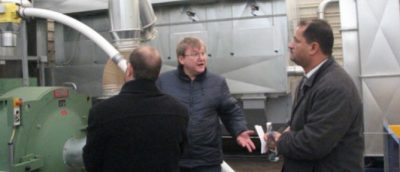Tonight begins Israel’s Independence Day, and a lot of recent articles on Green Prophet have been about the regional water crisis, and what must be done to alleviate it.
Both agronomists and hydrologists in our region have tried to find ways to deal with the increasing lack of water resources, including recycling of sewage and other wastewaters, building of reservoirs to collect winter rains and runoffs from winter snow falls in mountain areas, and most of all, desalination plants to change salty sea water into potable fresh water (after all, the earth’s surface is 70% water).
The recent water article by Professor Hillel Shuval, Director of Environmental Health Services at the Hadassah Academic College in Jerusalem probably summed it up by his opinions as what is the real cause of the current water problems in Israel.
The real cause, according to Prof. Shuval, has been government policies concerning water use and conservation for the past 20-25 years. There is a lot of truth in what he says, and it doesn’t take an expert in this area to conclude that he is right.
It wasn’t that long ago that Israel was considered by many to be a pioneer in using scarce water resources to “make the desert bloom”. Unique “drip” irrigation systems enabled vegetable crops to be grown in some of the driest desert regions, such as the Arava valley between Israel and Jordan. Agricultural experts came from all over the world to study these systems, which have been exported everywhere – even to countries not at peace with Israel.
Then, something happened to change the way people began to think about the matter of water conversation: The economy began to improve and so did the material desires of the average citizen; many of whom wanted to live a private home with a garden. This resulted in thousands of single and two family homes being built in new suburban neighborhoods outside of Tel Aviv and other cities.
Instead of planning ahead to meet future needs, successive Israeli governments waited each winter to see how much rain would fall to replenish water supplies used the previous summer. And when those rains didn’t fall, “drastic” measures were used – like the time a group of rabbis went out to the middle of the Sea of Galilee and prayed for rain. While this may have appeased some people (it actually did rain not long afterwards) it might have been better to decide on constructing a few more desalination plants instead of the mere handful we have now.
And less I forget, the Palestinians, with their ever increasing populations, are demanding a bigger share of these water resources too.
Planning not only for an increasing population, but for an increasing population with dreams of a more affluent lifestyle, might also have resulted in more water available via both recycling and desalination. After all, Gulf Emirate states like Abu Dhabi and Qatar get most of their water from desalination; and if they can do it, why can’t we?
It’s now obvious that the ever decreasing amounts of rainfall will not solve either Israel’s, Jordan’s, or even Lebanon’s water problems for that matter.
In the long run, all countries in the region have to be interdependent on each other to solve these problems, which will affect everyone. Jordan realizes this most acutely, but other countries may not. And by the time they do, it may be too late. Let’s hope this won’t be the case, in shalla.
(Image via BioArt)



